Orbital hybrid
Four orbital wheels, a hybrid drivetrain with a six-cylinder engine and two electric motors in the wheels, head-up vision, interactive screen, typical Sbarro design, the Orbital hybrid is a milestone in Franco Sbarro's career.
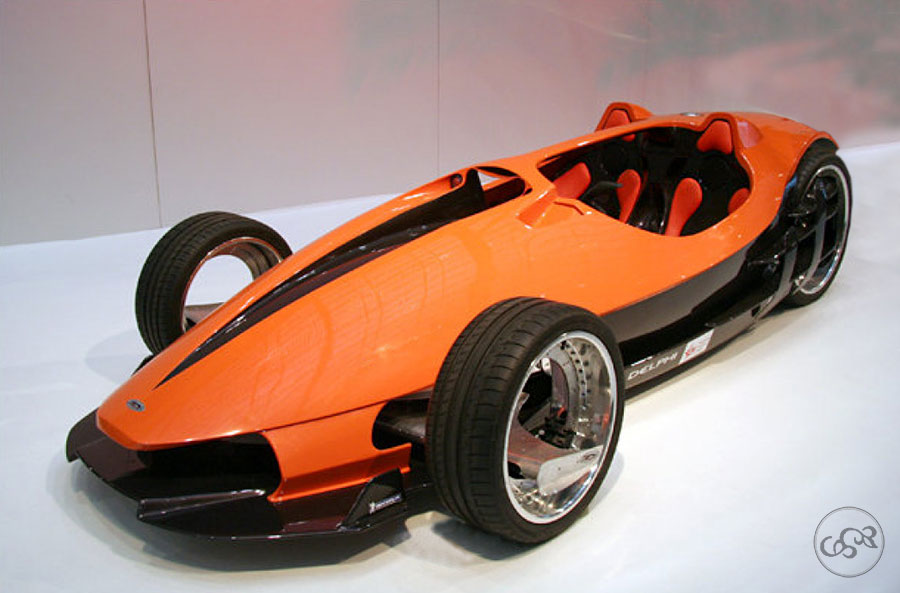
At last
At last, we find the orbital wheel on the Sbarro stand at the 2009 Geneva Motor Show, more than twenty years after its creation. Twenty years during which Sbarro was unable to exploit its ingenious invention, the patents having been sold. In 2009, Mottas Vistaholding, owner of the patents, reached an agreement with Franco Sbarro to resume development of the famous hubless wheel. And it's all very much in the spirit of the times, with thermal-electric hybrid systems becoming very much a part of the automotive world. And what better place to install a space-saving motor than in the center of the wheel. Franco Sbarro has already attempted to fit a conventional internal combustion engine in the wheel, with the Autonomous Motorized Wheel. Here, the rear axle accommodates the dual-motor system, i.e. part of the 160 hp six-cylinder engine and, on either side, the two electric motors, each rated at 10 hp. The front wheels, meanwhile, are "crossed" by a spoiler incorporating LEDs.
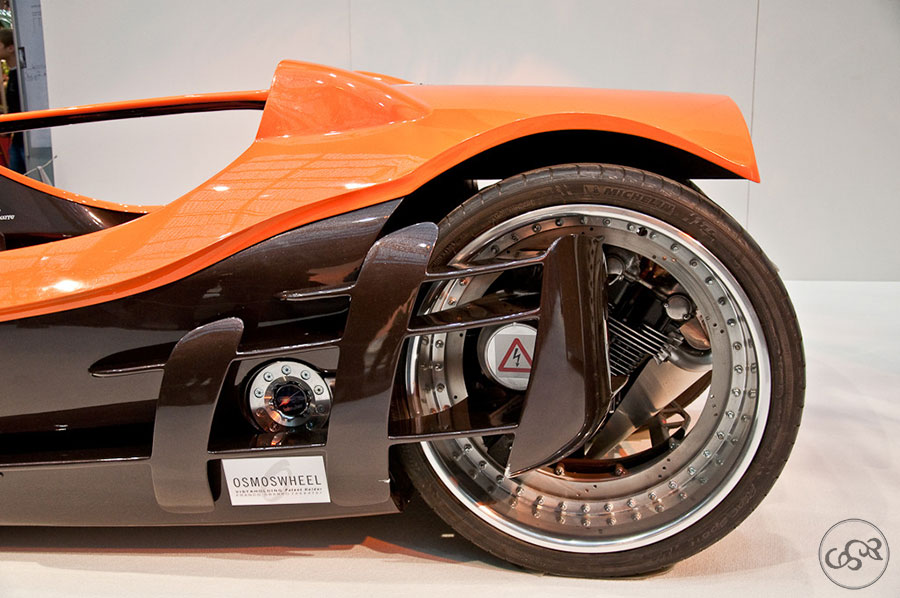
Head-up vision
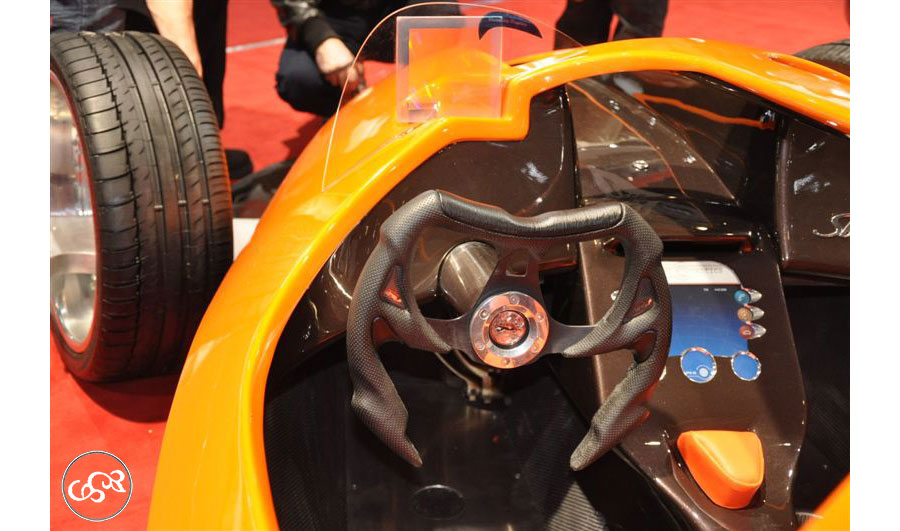
Haptic screen
The Orbital Hybrid is also equipped with a haptic screen supplied by Delphi. Behind this obscure name lies a screen from which heating, air conditioning, audio system, telephone and even some of the car's dynamic parameters can be controlled simply and intuitively. Instead of having separate controls for each of these functions, everything is grouped together on this force feedback screen. Menus are used to navigate from one function to the next. Innovative in 2009, this type of system is now found in many cars. Looking back over the past few years, the disappearance of physical control buttons hasn't really simplified controls, which aren't all that intuitive.
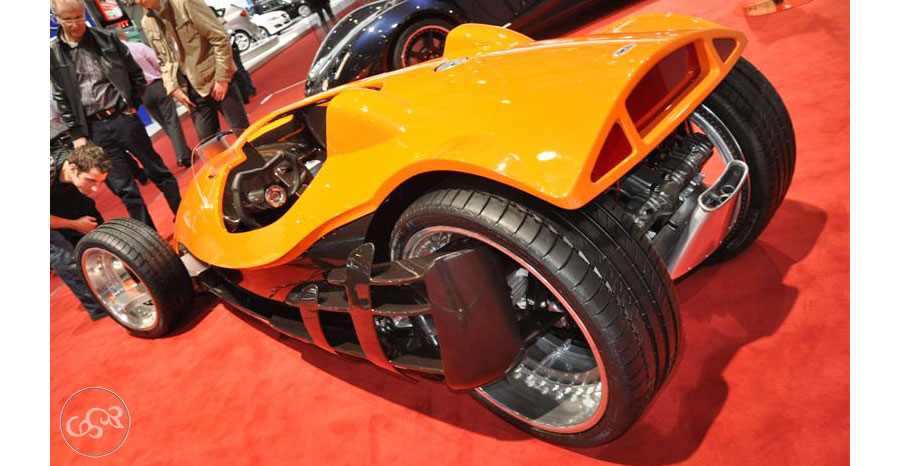
Advertising tool
Have you heard of Fondeurs de France and the Association Française de Forge? No, I don't. And they're sure of it too. The forge and foundry trades suffer from a notorious lack of image. They are associated with industries of the past worthy of a Zola novel. And yet these trades still exist, are at the cutting edge of technology and will offer many jobs in the short term. Unbeknownst to anyone else, they have decided to team up with Franco Sbarro to create a vehicle that will make a lasting impression: the Orbital Hybrid has become their calling card and advertising medium.
What the press had to say
From journal 24heures.ch of 3 march 2009
Sbarro
resurrects the hubless wheel, by Frédéric Ravussin
"«With the
Orbital Hybrid, I'm giving a final nod to an invention that
many have taken up - Michelin in pole position - without
always giving credit where credit is due," says the
Italo-Grandson native with a knowing smile. This wink is
also in line with a current trend in the automotive
industry. The emergence of hybrid vehicles is heightening
interest in hubless wheels," says Franco Sbarro. In the case
of the Orbital Hybrid, the space available in the center of
the wheel can accommodate the two 10 hp electric motors, as
well as part of the 160 hp 6-cylinder internal combustion
engine.»
The Orbital Hybrid [was] developed in partnership with
patent holder Osmoswheel Vistaholding, its orange monocoque
serving as a luxurious showcase for Delphi's bold,
futuristic solutions (mobile electronics). Its dashboard,
for example, features an intelligent (haptic) display. "It's
used a bit like an iPod and informs the driver about the
different levels of the vehicle. When everything is in
order, it remains inactive, but nevertheless responds to
requests from the driver, who can also use the system to
listen to music." In addition, a head-up display system
allows the driver to access this data in front of him, in
the form of a hologram, without having to take his eyes off
the road.
The Fondeurs de France and the Association française des
forges were also involved in the project. "The aim was to
show the technological breakthroughs made in their field and
to dust off the negative stereotypes associated with their
profession," emphasizes Franco Sbarro..»"
Extract from the Geneva Show 2009 press release
"Orbital Hybrid is a concept for a four-wheeled vehicle, a kind of Formula 1 for the road, two-seater, very playful, highly motorized (thermal and electric), with four wheels without hubs, whose rear axle hides the dual motorization in a very compact way (while showing it!). It's a condensed application of metal transformation processes by forging and casting of engine, transmission, braking and ground linkage parts, etc., which are not usually seen, but which on Orbital Hybrid, are highlighted in the foreground... so that they can be seen and talked about! Because each piece has a story, a justification, is representative of one or other of the transformation processes, has a use value, is the expression of the know-how of the company, of the man or woman who designed and produced it. It is therefore an active communication tool, particularly aesthetic, visual and sensory, very concrete: we look at it and touch it, we ask questions about how it works. [...]
Orbital Hybrid
is designed to be presented primarily at career forums,
career fairs, vocational high school open days, etc., and at
any other targeted event likely to attract a significant
flow of young people, whether or not accompanied by their
families. Orbital Hybrid's spectacular, even extravagant,
yet realistic (it will be road-legalized) appearance is a
pretext for hooking young people, arousing their interest
and curiosity, and starting a discussion along the lines of
"What is it? What's it for? How and where is it made?
Once contact has been established, the professional
organization's animators can develop their arguments in
response to: what are the study paths to get there?
Orbital Hybrid aims to spectacularly showcase foundry and
forge products related to the automotive world, so as to
associate these metallurgical transformation processes with
an image of technology, performance, dreams, surpassing
technically possible limits... all messages to which young
audiences are highly receptive."
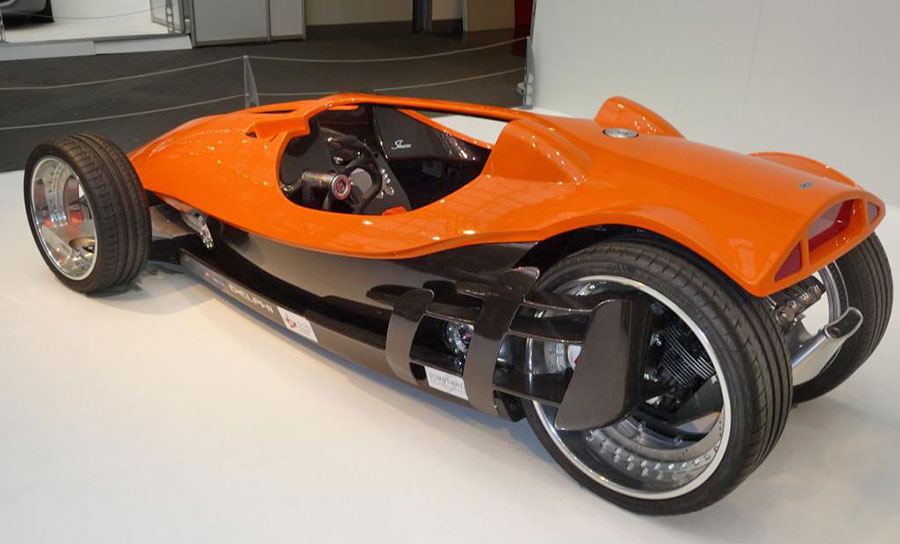
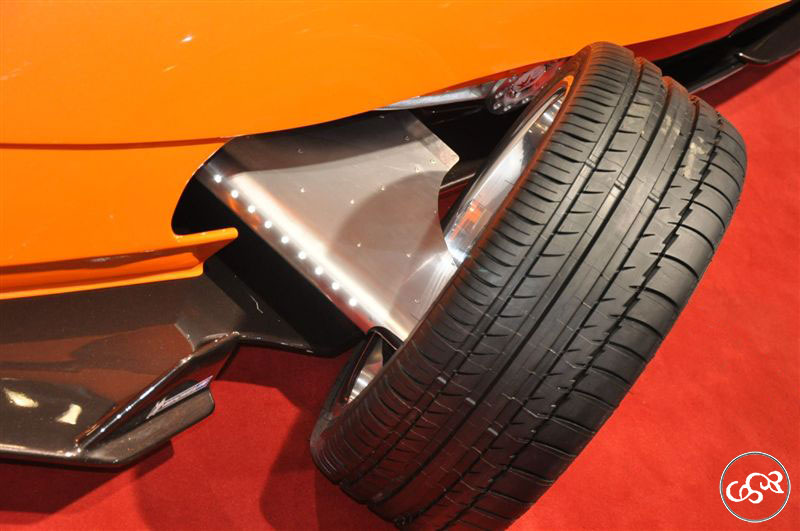
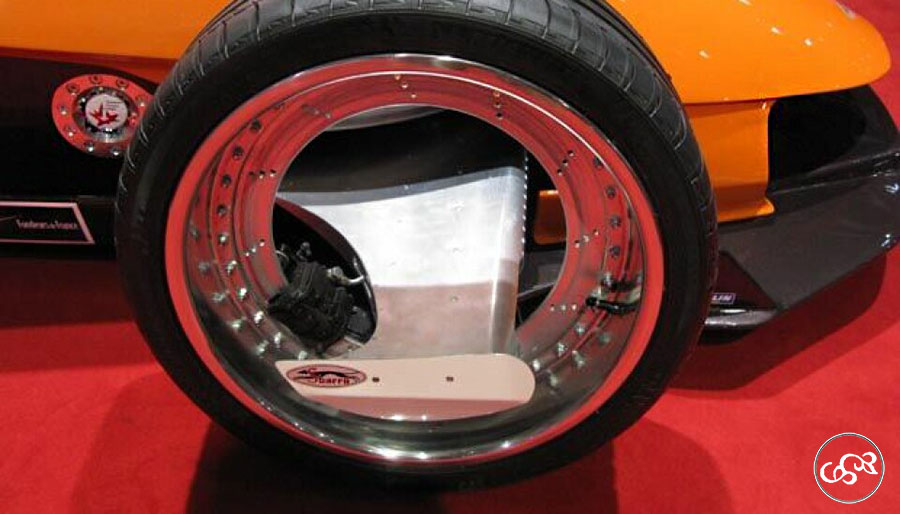
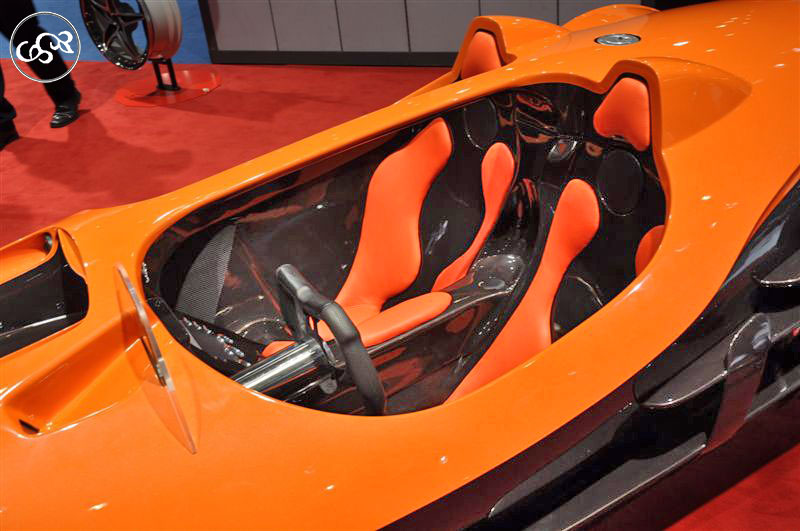
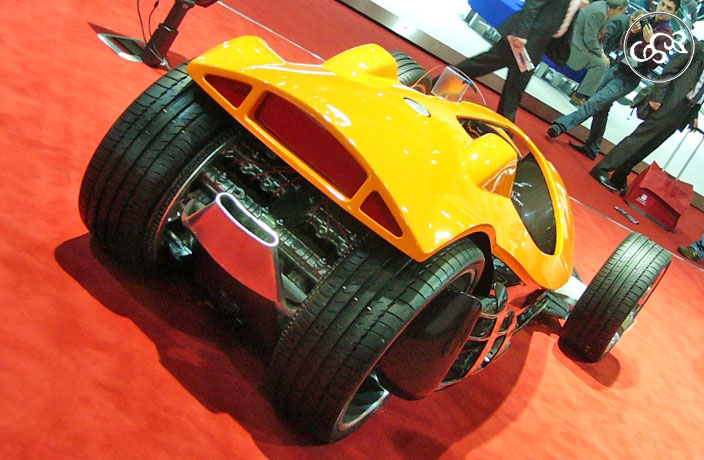
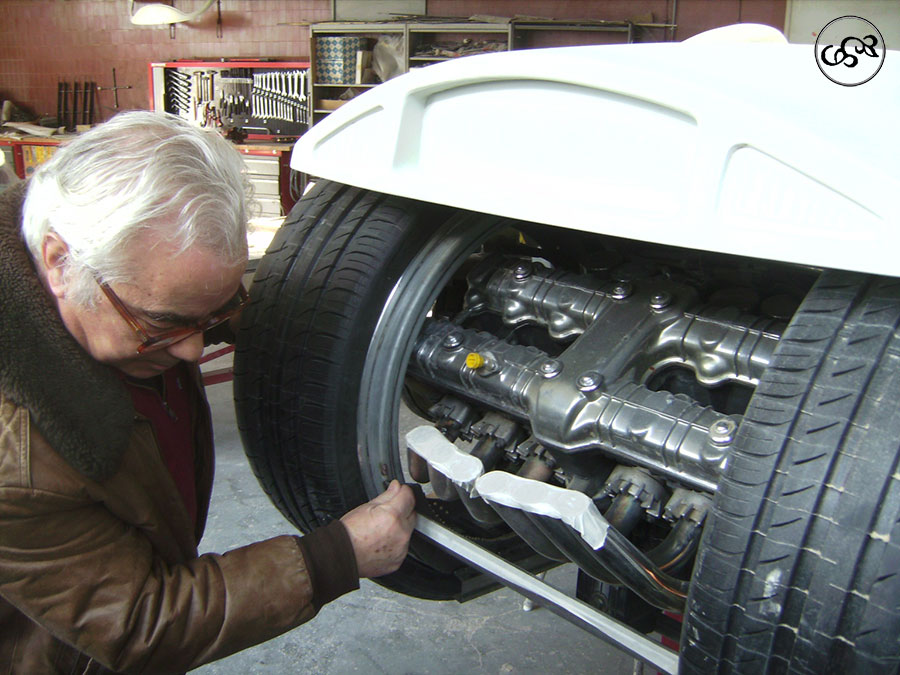
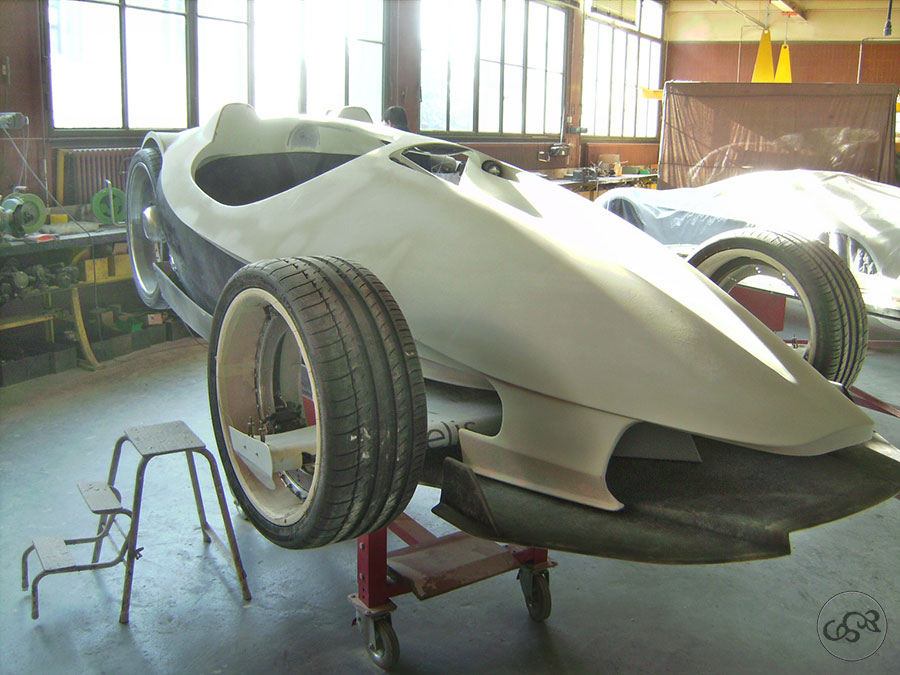
In brief
1- Marks the return of the orbital wheel, twenty years on
2- Hybrid motorization
3- Haptic screen and heads-up display